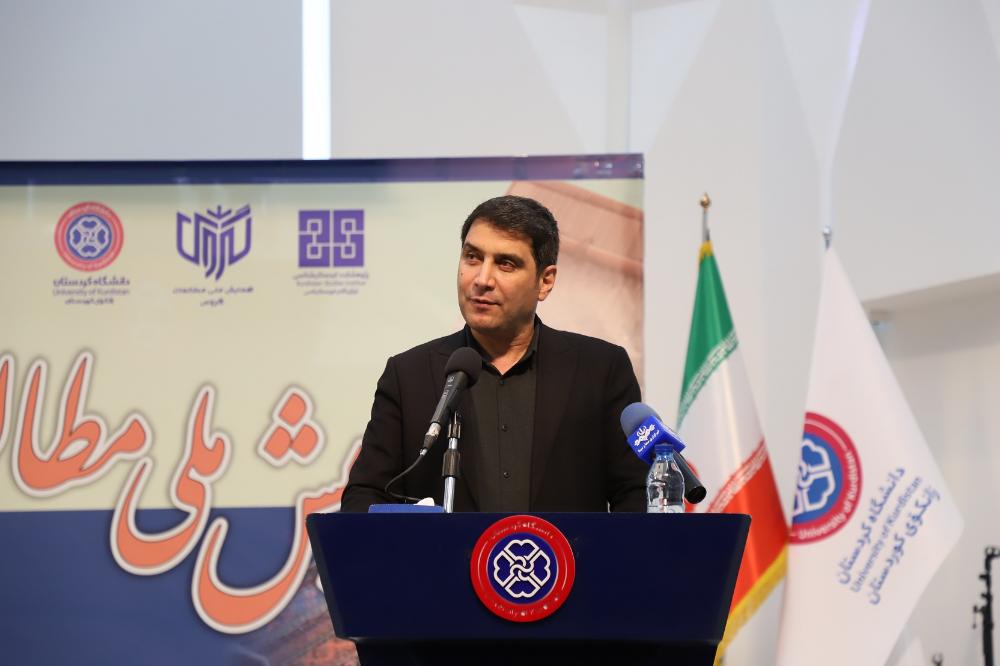The National Conference on "Exploring the Development Capacities of the Garous Region" commenced at the University of Kurdistan, attended by the Governor of Kurdistan and national academic elites. The event emphasized the pivotal role of fourth-generation universities in providing scientific solutions to regional challenges and formulating a sustainable development roadmap.
University of Kurdistan, the Hub for Garous Region's Development; Governor Outlines Development Roadmap

According to the Public Relations Office of the University of Kurdistan, on Wednesday, October 22, the university hosted the opening ceremony of the scientific conference. The event was held to reassess the capacities and present scientific strategies for the development of this strategic region.
The Garous Region: A Special Place in Iran's Cultural and Economic Structure
In his opening speech, Arash Zerehtan Lahoni, the Governor of Kurdistan, described the Garous region as a cultural circle connecting the three provinces of Kurdistan, Zanjan, and Hamedan. He highlighted the region's distinguished place in Iranian history and culture by mentioning great figures such as Shahab al-Din Suhrawardi and Amir Nezam Garrousi.
The governor, noting Bijar's economic potential in grain supply and its logistical position, identified migration and rural depopulation as the region's main challenges. He outlined the government's most important plans to accelerate development, including the completion of the railway project, improvement of road networks, and sustainable water transfer. "With the cooperation of the people and officials, we must accelerate the development process of Bijar county and achieve positive population growth," he said.
Fourth-Generation University: Bringing Science to the People
Dr. Bahram Nasrollahizadeh, the scientific secretary of the conference, emphasized the social mission of universities, stating, "Inspired by fourth-generation universities, the University of Kurdistan strives to bring science to the people and play a role in solving societal problems."
He noted the collaboration of top national universities such as Tehran, Tarbiat Modares, and Shahid Beheshti, and the support of reputable institutions like the ISC in organizing the conference. He reported that out of 71 submitted papers, 55 were accepted.
The scientific secretary added, "In an innovative approach, a number of selected papers were published in reputable scientific-research journals before the conference, and to reduce paper consumption, all certificates were issued electronically."
The conference will continue with specialized panels and presentations of papers in oral and poster formats, providing a platform to connect researchers and development practitioners.


















